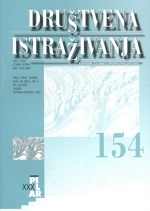Who and What Holds Back Reforms in Croatia? – The Political Economy Perspective
Who and What Holds Back Reforms in Croatia? – The Political Economy Perspective
Author(s): Valentina Vučković, Ružica Šimić BanovićSubject(s): Supranational / Global Economy, Business Economy / Management, Economic development, Law on Economics, Corruption - Transparency - Anti-Corruption
Published by: Institut društvenih znanosti Ivo Pilar
Keywords: reforms; Croatia; clientelism; coalitions; corruption; economic freedom;
Summary/Abstract: The purpose of this paper is to explore the factors affecting reform patterns in Croatia in order to identify the main reasons for the (missing) reform success so far. The focus is on the analysis of the political system, especially on government fragmentation as one of the main features of proportional electoral rule and clientelism. In addition to political variables, economic factors are analysed as well. The obtained results show that reforms in Croatia were implemented during crises, that coalition governments are not conducive to reforms and that clientelism and corruption present significant obstacles for reform implementation in Croatia. Moreover, the results show that political cycles also have a significant effect, with reform activity slowing down as elections approach. This article contributes to the burgeoning debate on reform implementation (in the post-socialist societies) from the political economy perspective.
Journal: Društvena istraživanja - Časopis za opća društvena pitanja
- Issue Year: 30/2021
- Issue No: 4
- Page Range: 675-698
- Page Count: 24
- Language: English

